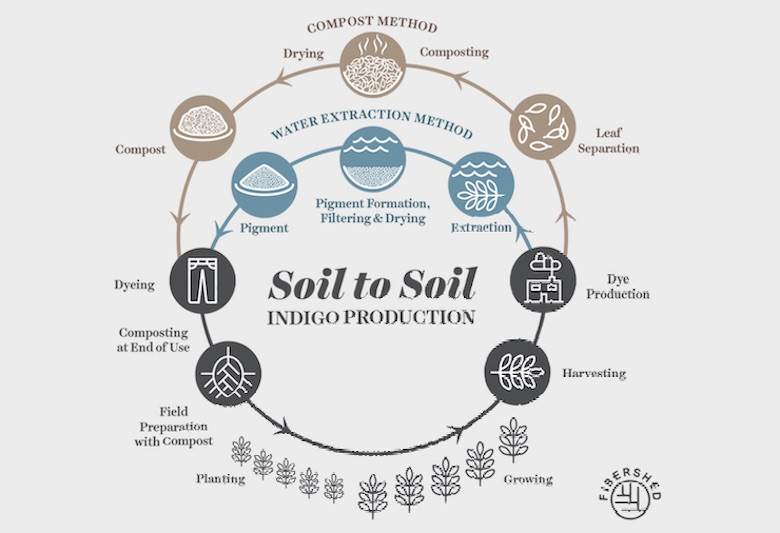Fibershed’s ‘traditional’ indigo composting process

California-based Fibershed - a non-profit which focuses on “regenerative” textile systems that are based on carbon farming and regional manufacturing - has shed light on its “traditional” approach to indigo dyeing.
“Indigo is unlike most natural dyes in that it is not soluble in water; to create a usable dye, the pigment must be extracted from the leaves and combined with materials that will make the colour accessible to fibre,” the company said.
From its Californian base, Fibershed follows a composting and fermentation process with indigo which includes drying the leaves and separating the stems, composting the leaves to break down the cellulosic material and concentrate the blue pigment and then using the resulting concentrate (known as sukumo) to create water-based fermentation vats.
Image: Fibershed.










